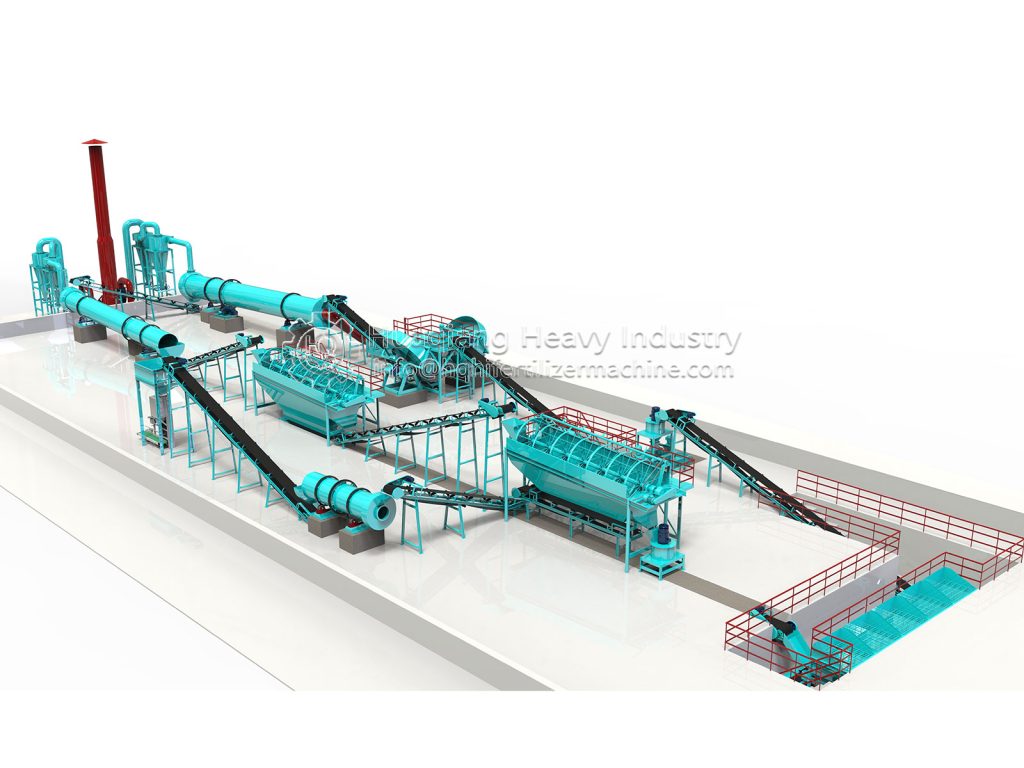The organic fertilizer production line specializes in transforming livestock manure and agricultural waste into nutrient-rich organic matter through fermentation and composting processes. This eco-friendly system not only recycles waste but also improves soil structure and microbial activity, making it fundamentally different from chemical fertilizer production in both raw materials and environmental benefits.
While the organic fertilizer line focuses on natural decomposition processes, the NPK fertilizer production line chemically synthesizes precise nitrogen, phosphorus, and potassium ratios. The key distinction lies in their production philosophy – organic lines emphasize sustainable recycling of biological waste, whereas NPK lines prioritize exact nutrient formulations for specific crop requirements.
Gold in Waste
Traditionally viewed as mere disposal challenges, livestock manure and agricultural waste are being transformed into genuine treasures through modern organic fertilizer production lines. These potentially polluting materials miraculously become nutrient-rich organic fertilizers through advanced fermentation and granulation processes, achieving perfect resource recycling.
The Dual-Benefit Environmental Solution
This innovative production system creates astonishing dual benefits: enterprises gain substantial economic returns while the planet receives valuable environmental dividends. Each organic fertilizer production line quietly contributes to reducing greenhouse gas emissions and improving soil quality – this “profitable yet eco-friendly” model represents the best practice of sustainable development.
Technology Reshaping Agriculture
Modern organic fertilizer production lines employ automated control systems and precision equipment, elevating traditional composting to industrial standards. From raw material pretreatment and high-temperature fermentation to final granulation and packaging, the entire process is both efficient and clean. The produced granular organic fertilizers feature balanced nutrients and convenient transportation/application, completely transforming the “dirty and messy” image of traditional organic fertilizers.
Vanguard of Global Environmental Engineering
As nations worldwide seek environmental solutions, organic fertilizer production lines demonstrate remarkable potential. Estimates suggest that processing one ton of agricultural waste can reduce approximately 0.5 tons of carbon emissions. As more enterprises join this movement, we see not just business opportunities, but hope for harmonious coexistence between humanity and the environment.
The Green Choice for Tomorrow
With the rise of organic farming and growing consumer environmental awareness, market demand for organic fertilizers is rapidly increasing. Investing in organic fertilizer production lines has become not just a business decision but a responsibility for Earth’s future. This “waste-to-wealth” revolution is redefining our understanding of resource utilization, paving new paths for agricultural sustainability.




